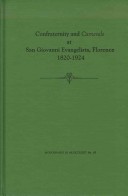Monographs in Musicology
1 total work
v. 9
Piano and Song (Didactic and Polemical) by Friedrich Wieck
by Friedrich Wieck and Henry Pleasants
Published 28 February 1988
Most music lovers are aware of Friedrich Wieck was the father and sole teacher of Clara Schumann and most vividly, as the man who did his level - and sometimes not so level - best to prevent her marriage to Robert. A smaller number know him as a teacher of singing, and more significantly, of the great pianist Hans von Bülow. In a letter to Wieck, von Bülow wrote, "I have never forgotten or denied - and in this the future will mirror the past - what I haveyou, most revered master, to thank for. It was you who, first and fundamentally, taught my ear to hear, impressed upon my hand proper rules and logical procedures, and raised my talent from the dusk of unconsciousness to the bright light of consciousness. He who cherished and cultivated the insignificant-appearing seed with exceptional care and love is entitled to claim substantial coauthorship in the ripened fruit."
Wieck was a prolific writer aswell, contributing articles of pedagogical and critical substance to a number of journals. He drew extensively upon these in assembling this book, published in Leipzig in 1853. Here, Der alte Schulmeister, as he represents himselfthroughout the text, puts forth his strongly held, animated views on pianistic and vocal pedagogy and performance. Noted critic Henry Pleasants has now provided an unabridged and abundantly annotated English translation of this unique collection, the first since the unannotated 1873 version of H. Krueger and the abridged 1875 issue by Mary P. Nichols.
Wieck was a prolific writer aswell, contributing articles of pedagogical and critical substance to a number of journals. He drew extensively upon these in assembling this book, published in Leipzig in 1853. Here, Der alte Schulmeister, as he represents himselfthroughout the text, puts forth his strongly held, animated views on pianistic and vocal pedagogy and performance. Noted critic Henry Pleasants has now provided an unabridged and abundantly annotated English translation of this unique collection, the first since the unannotated 1873 version of H. Krueger and the abridged 1875 issue by Mary P. Nichols.
